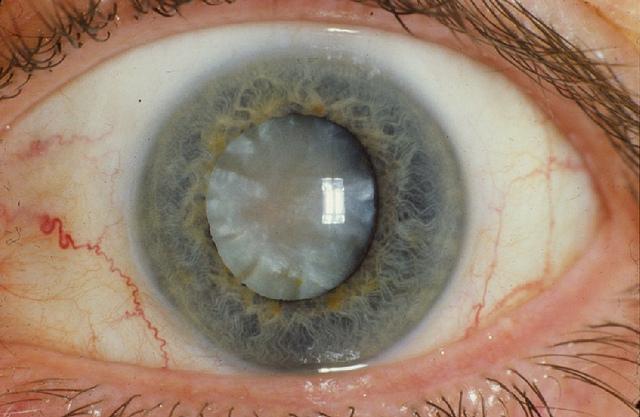Scientists in California have discovered that the naturally occurring steroid lanosterol is able to melt away cataracts and prevent them from returning when administered to patients via eye drops. If this is approved for human use, compound would be available as a non-invasive treatment for individuals with moderate forms of cataracts.
Scientists first became aware of lanosterol cataract-blocking abilities by observing two children in China who had a hereditary form of the condition. Upon closer examination, it became clear that the children shared a mutation that blocked the production of the steroid lanosterol, Science Alert reported. Their parents lacked this mutation and as a result never went on to develop cataracts. From this observation, the team proposed that the steroid must play a role in the formation of cataracts.
Eye Drop That Can Melt Away Cataracts
In a series of experiments outlined in a study now published in Nature, the team tested lanosterol on donated human lenses and live rabbits and dogs. Results repeatedly showed that lanosterol was able to significantly shrink cataract size.
Cataracts develop when protein in the lens builds up and prevents light from getting through. Although the condition can be hereditary, such as in the case of the Chinese siblings, it is more often likely to develop at an older age. According to the Centers for Disease Control and Prevention, cataracts are the leading cause of blindness worldwide and the leading cause of vision loss in the U.S. Currently, the only treatment available for cataracts is surgically removing the clouded lens from the eye and replacing it with an artificial lens.
Although it’s not entirely clear how lanosterol is working, the researchers believe that the steroid prevents the proteins from building up. According to Tech Times, if the drops prove to also work on humans, they could offer a non-invasive treatment for individuals with mild to moderate cataracts and serve as a way to prevent the condition from ever returning. While cataract surgery is relatively easy and safe, the drops would serve as an easier alternative for the 50 million Americans estimated to be afflicted by the condition by the year 2050.
Despite not yet being tested on humans, the study is already causing excitement. Jonathan King, a molecular biologist from the Massachusetts Institute of Technology, told Armitage that the study is the strongest of its kind that he’s seen in decades.
“They discovered the phenomena and then followed with all of the experiments that you should do — that’s as biologically relevant as you can get,” King explained.
